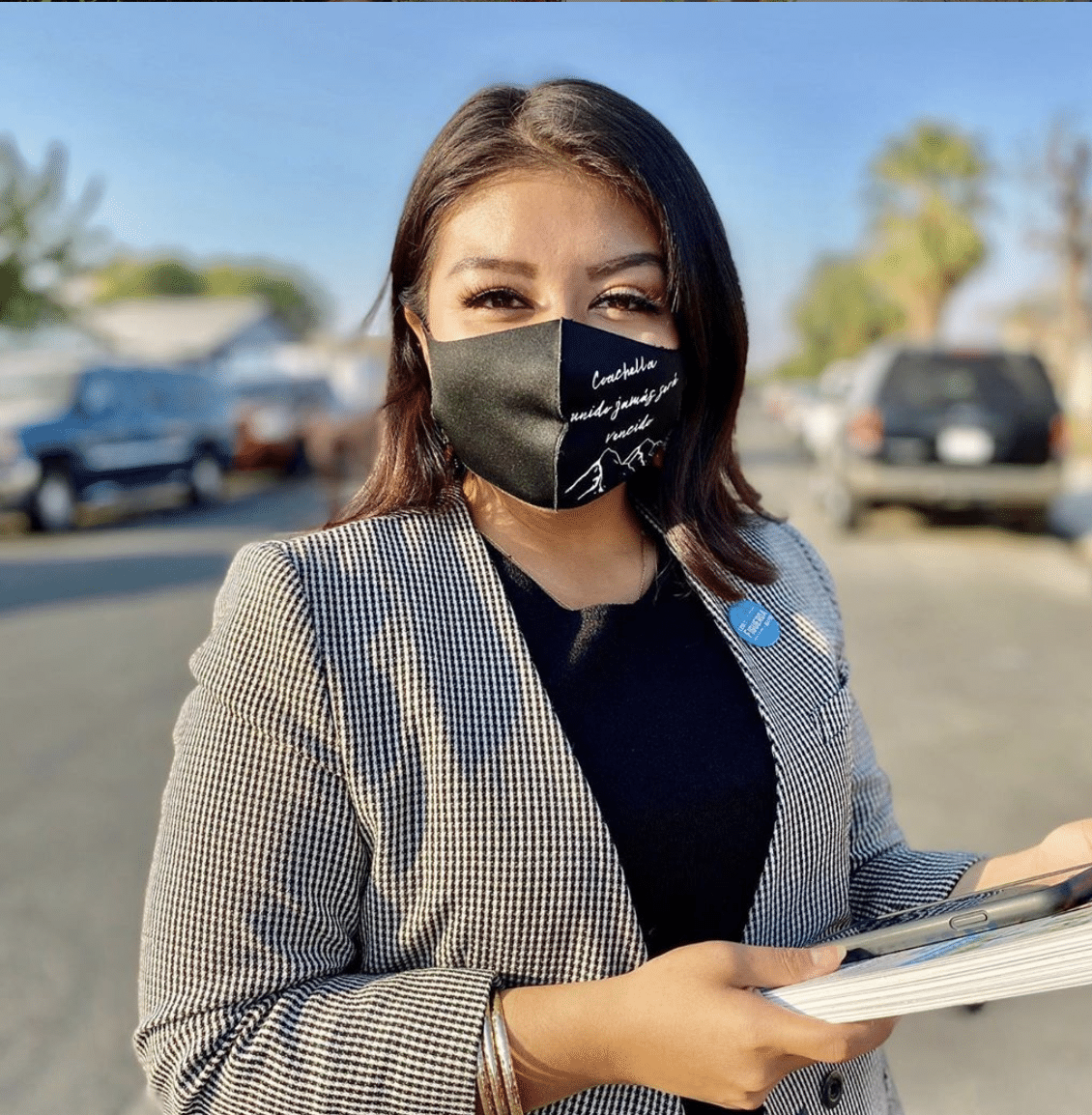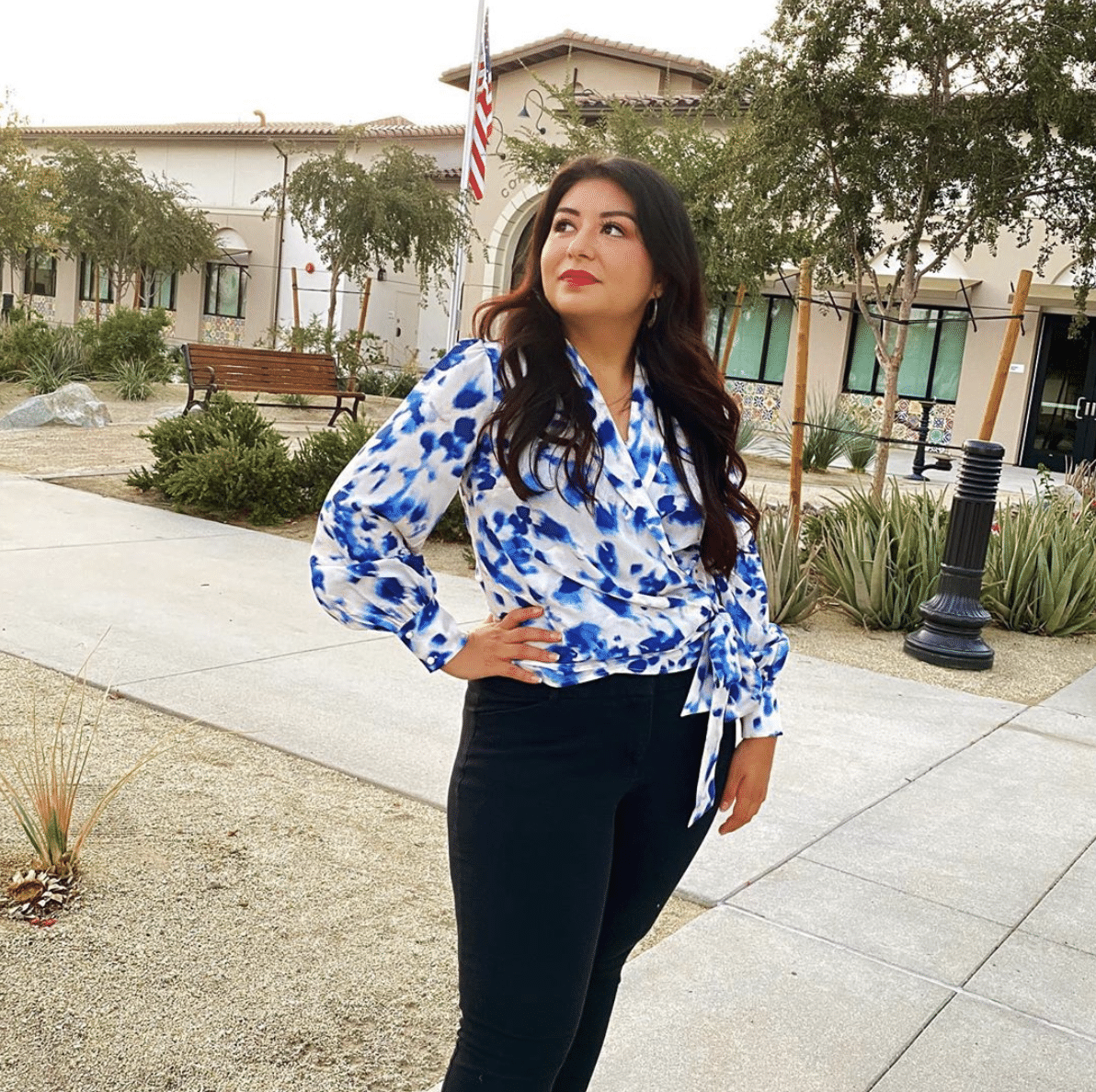This 24-Year-Old Chicana Is Running For Coachella Mayor And She Has A Clever Response For Those Saying She’s Too Young
When the COVID-19 pandemic reached Coachella, Calif., in the spring of 2020, its residential community, largely working-class Latinxs, had questions, concerns and needs. But Lesly Figueroa, who’s running for mayor of the small city, says many didn’t know where to voice their worries or obtain critical information and resources.
“There needed to be someone to step up and have better leadership,” the 24-year-old community organizer tells FIERCE by mitú.
Frustrated by the lack of support from local elected officials, Figueroa decided to challenge three-term Coachella Mayor Steven Hernandez for the top leadership office in the city.

The first-time candidate grew up in Coachella, attending schools in the Coachella Valley Unified School District. Presently, the daughter of Mexican immigrants works as a policy advocate for the community-based environmental justice nonprofit Leadership Counsel for Justice and Accountability. In her role, she works with marginalized communities to advocate for sound policy, eradicate injustice and secure equal access to opportunity regardless of wealth, race, income and place. Recently, she has been helping residents of the Eastern Coachella Valley’s unincorporated communities and mobile home parks in their struggle for clean drinking water and affordable housing.
With a degree in Urban Studies and Planning from the University of California, San Diego, where she was student body president, she believes she has what it takes to tackle one of the biggest issues the people of her city are facing: development.
Coachella, which is home to 45,000 people, is transitioning from a small town to a city. With the area vulnerable to real estate investors, Figueroa wants to ensure that the people of Coachella – where 98% of the population identifies as Latinx – are not forgotten, or worse, displaced.
“We know investors see working-class communities as having cheap land and cheap labor, which is very offensive,” Figueroa says, “I want to bring community members in to play key roles in shaping their neighborhoods.”
If elected mayor, she intends to create planning groups or establish several councils that aim to ensure residents of each district are part of the urban planning process, which could look different for each community.
“They are the ones who live there. They are the ones who go outside in the morning and see a place they want to live in or something that disrupts their life, whether that neighborhood issue be over-policing, bad smells or not feeling seen by your government,” she says.
This bottom-up approach would be executed to tackle various city issues, she says. For instance, by communicating with community members, Figueroa has discovered that many are distrustful of local officials and are disillusioned by politics. To promote accountability and a transparent democratic government, Figueroa proposes an annual assessment of where and how public funds are being used as well as creating a community outreach guide that the council and commissions can follow when applying for funding opportunities.
Figueroa’s platform also mentions more affordable housing options and tenant protections to the city and ensuring a fair and just economic recovery for residents impacted by COVID-19, including creating economic opportunities through union jobs that offer livable wages.
“I want to lead with a bottom-up approach that’s informed by the community and puts the needs of the most vulnerable to the forefront: those who are low-income, undocumented, women, LGBTQ [and] single mothers,” she says.
At 24 years old, Figueroa notes that her age has made some question her mayoral capabilities. However, she points out that Hernandez – who was first elected to city council in 2006 and served as mayor since 2014 – was just 23 years old when he entered public office.

Additionally, Coachella is a relatively young city. With a median age of 33.5 years old, it has the youngest population of any city in the Coachella Valley. These energized young people, not unlike many of their disillusioned elders, have one thing in common: they want change, according to Figueroa.
“They’ve seen what Coachella has become, how it has changed and that it is better than it was 10 years ago, but they want more progress and new leadership, and they see young people coming to the table to do this,” she says.
Although Figueroa is running as a young Latina woman with an all-volunteer campaign team, she doesn’t see her crusade as revolutionary. Instead, she prefers to focus on how she could help make small, realistic and necessary systemic changes that significantly transform the way people live.
“It would be an honor to be there with my community and lead them to a next-level position,” Figueroa says. “I want this to be a start and something we can do locally to deconstruct the negative things of our society and construct positive things in our community that will advance us and unite us.”




